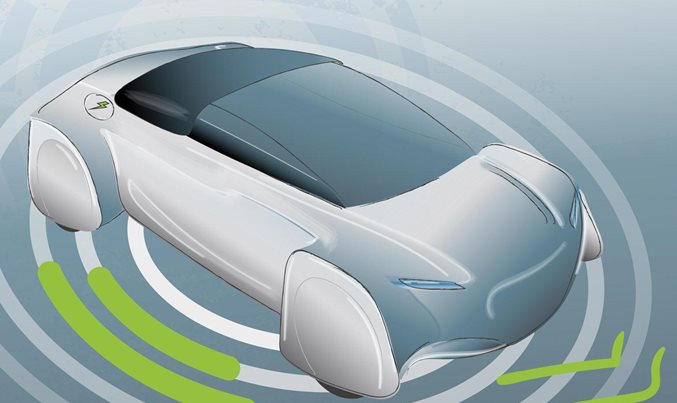Automotive technology trends are constantly evolving with advancements in artificial intelligence, electric vehicles, connectivity, and autonomous driving. These trends revolutionize the automotive industry, enhancing safety, efficiency, and overall driving experience.
From the development of self-driving cars to the integration of voice commands and smart features, the automotive landscape is progressing towards a more connected and autonomous future. With the growth of electric vehicles, there is also a focus on increasing charging infrastructure and improving battery technology.
As a result, the automotive industry is witnessing a shift towards sustainable transportation solutions. These trends not only impact the manufacturing and design of vehicles but also pave the way for new opportunities and challenges for the automotive sector.

Credit: www.openpr.com
Augmented Reality (Ar) For Enhanced Navigation
Augmented reality (ar) is revolutionizing vehicle navigation systems by providing real-time visual guidance combined with overlaid information. This integration enhances the overall navigation experience for drivers. By projecting relevant information onto the windshield or dashboard, ar technology helps drivers stay focused on the road while receiving important instructions.
This not only improves situational awareness but also enhances safety by allowing drivers to quickly and easily access information without diverting their attention. Instead of relying solely on audio cues or looking away from the road, ar navigation systems provide a more intuitive and user-friendly interface.
With ar, drivers can have a seamless and interactive experience, making their journeys more efficient and enjoyable. The integration of ar in vehicle navigation systems is shaping the future of automotive technology, providing drivers with enhanced navigation capabilities.
Electric Vehicles (Evs) And The Rise Of Sustainable Transportation
Electric vehicles (evs) are on the rise as sustainable transportation gains popularity. With growing consumer demand for eco-friendly options, advancements in battery technology and charging infrastructure have become crucial. These technological developments are making a significant impact in reducing greenhouse gas emissions, addressing concerns about the environment.
Evs offer a greener alternative to traditional combustion engine vehicles, contributing to a cleaner and more sustainable future. Governments and manufacturers alike are focusing on promoting the adoption of evs to combat climate change and natural resource depletion. As ev technology continues to evolve, it becomes clear that sustainable transportation is no longer just a niche market, but a global movement towards a greener tomorrow.
The shift towards electric vehicles heralds a new era in automotive technology, highlighting the growing importance of environmentally conscious choices in transportation.
Connected Cars: Transforming The Commuting Experience
Connected cars are revolutionizing commuting by enabling vehicle-to-vehicle (v2v) communication, ensuring enhanced safety on the roads. These cars also integrate seamlessly with smartphones and internet of things (iot) devices, providing convenience to users. By leveraging v2v communication, cars can exchange information in real-time, avoiding accidents and promoting safe driving practices.
Furthermore, the integration with smartphones and iot devices allows for a host of features like remote control, real-time diagnostics, and personalized settings. This not only enhances the overall driving experience but also improves traffic management and reduces congestion on the roads.
With these advancements in automotive technology, commuting is becoming smarter, safer, and more efficient for the modern driver.
Conclusion
As the automotive industry continues to evolve, it is clear that automotive technology has become an integral part of our daily lives. From electric vehicles to autonomous driving, these emerging trends are reshaping the way we move and interact with our vehicles.
Advancements in connectivity have also paved the way for smart cars, making our driving experience safer and more convenient. Moreover, the integration of artificial intelligence has brought about breakthroughs in vehicle performance, efficiency, and reliability. As we move forward, it is exciting to see how these technological advancements will continue to transform the automotive industry.
From reducing emissions to enhancing safety, the possibilities are endless. It is evident that automotive technology will play a crucial role in shaping the future of transportation. So, buckle up and prepare for a thrilling ride as we embrace the ever-changing landscape of automotive technology.






